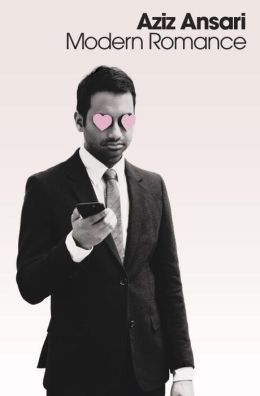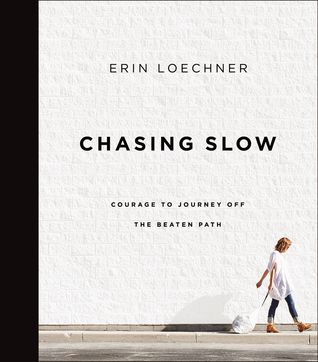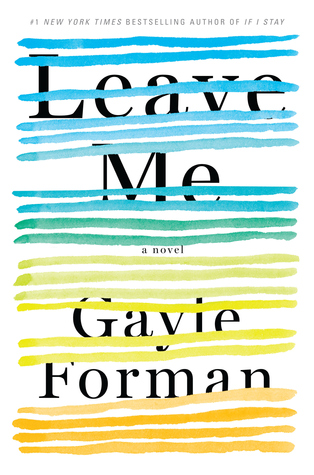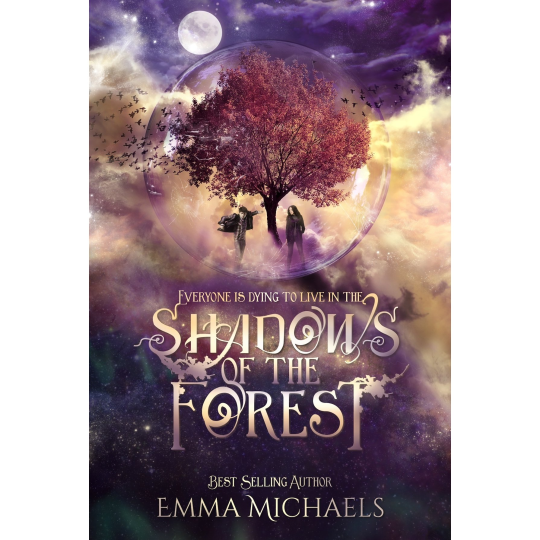 Modern Romance by Aziz Ansari
Modern Romance by Aziz Ansari
At some point, every one of us embarks on a journey to find love. We meet people, date, get into and out of relationships, all with the hope of finding someone with whom we share a deep connection. This seems standard now, but it’s wildly different from what people did even just decades ago. Single people today have more romantic options than at any point in human history. With technology, our abilities to connect with and sort through these options are staggering. So why are so many people frustrated? …
For years, Aziz Ansari has been aiming his comic insight at modern romance, but for Modern Romance, the book, he decided he needed to take things to another level. He teamed up with NYU sociologist Eric Klinenberg and designed a massive research project, including hundreds of interviews and focus groups conducted everywhere from Tokyo to Buenos Aires to Wichita. They analyzed behavioral data and surveys and created their own online research forum on Reddit, which drew thousands of messages. They enlisted the world’s leading social scientists, including Andrew Cherlin, Eli Finkel, Helen Fisher, Sheena Iyengar, Barry Schwartz, Sherry Turkle, and Robb Willer. The result is unlike any social science or humor book we’ve seen before.
I seriously enjoyed this book. I guess I didn’t read the description closely enough, because I thought it was more of a funny memoir, but I’m not mad at all (really). This was a fascinating read.
Most of the book deals with how people in the information age meet, interact with, cheat on, and break up with their significant others. It has to do a lot with apps like Tinder, since that is what has vastly changed the dating landscape. He compares older generations with millennials and Gen Z-ers, and the main takeaway is the Internet opens up our options so much that a lot of us see all the options available to us and freeze. While older folks’ partner options were limited to those who lived nearby, now we can meet anyone from anywhere. This unlimited potential paralyzes us, because with so many options, we don’t need to settle, and tend to create a “perfect” person in our mind. In theory, that sounds great, but in practice, it always leaves us wondering if the person we’re currently seeing is really the absolute best. It doesn’t leave much room for investing in one specific person.
The most interesting part of the book, though, was the chapter on foregin countries. Ansari went to Tokyo and Buenos Aires to study the dating cultures there, and my mind was so boggled that I read most of this chapter out loud to my husband because I needed someone else to know the things I was learning. First of all, machismo is alive and thriving in Buenos Aires. One thing the mayor of the city — the mayor! — said about catcalling had my jaw on the floor. Not in a good way, either. I would not want to be a woman there, if I’m being honest — it’s clear they are mainly viewed in light of what they can give men. And as for Tokyo, all I’ll say is this: look up Soapland. Just do it.
(Actually, the situation in Tokyo is very sad also, but in an opposite way from Buenos Aires. I was enthralled to read about how it got the way it is, but to my western mind, Soapland was just. So. Bizarre.)
Amidst all the research, Ansari of course has to throw in his own quips. I found myself laughing out loud more than once. If Ansari narrates the audiobook, that would definitely be worth a listen.
The only thing I disliked about this book is that I didn’t read it in hard copy. I borrowed an ebook from the library, and it wasn’t spectacular. I couldn’t see the graphs very well, and I couldn’t read the footnotes. I assume at least some of those were jokes, and I missed out on those, which I truly regret. But other than that, this was such a fun book to read, and I learned a lot from it. Even though it’s not a memoir like I thought, I’d still recommend it for sure!
 Chasing Slow by Erin Loechner
Chasing Slow by Erin Loechner
You’re here, but you want to be there.
So you spend your life narrowing this divide, and you call this your race, your journey, your path. You live your days tightening your boot straps, wiping the sweat from your brow, chasing undiscovered happiness just around the bend. Higher! Faster! Better! Stronger!
And on and on you run.
Viral sensation and HGTV.com star Erin Loechner knows about the chase. Before turning 30, she’d built a fan base of one million women worldwide and earned the title “The Nicest Girl Online” as she was praised for her authentic voice and effortless style. The New York Times applauded her, her friends and church admired her, and her husband and baby adored her.
She had arrived at the ultimate destination.
So why did she feel so lost?
First, the good things: I really enjoyed the first half of this book. It was part self-help, part memoir, and while I’m not a big fan of self-help, the memoir was interesting. I loved reading about how Erin got to where she is — you don’t turn your blog into a smashing success overnight. It was cool to see her go from having a job she just felt meh about to thinking, hey, I could really do something with my design skills. Plus, the book itself is absolutely beautiful — the fonts are so clean, the paper is nice, the pictures interspersed throughout are lovely. Also, I didn’t know who she was before reading this (my sister-in-law gifted me this for Christmas), and when I went to read her blog I fell in love. It’s one of the most beautiful blog designs I’ve ever seen, and she has such a good mix of personal stories and life tips. In my alternate life as a professor of blogging, I’d use hers as an example of a big, successful blog that feels just as personal and intimate as the tiny ones.
The bad: Once I got through the halfway point, it was less Erin’s life story and more short quips. I read a few reviews before I finished the book, and several people complained about her habit of putting a succint, oversimplified life metaphors at the end of every chapter. At first, I thought it couldn’t be that bad. But it could. Erin likes to look at life through quotes, and that’s really nice sometimes. It definitely works at the end of blogs posts, which you don’t usually read one after the other (unlike book chapters). But in a book it feels a little too twee.
Despite my negative comments, I did enjoy the book, and at the very least I’m really glad I found her blog. I think to really enjoy this book, you might want to read through her blog first and get a sense of her life story, and then read the book one chapter at a time. Skip around some. It’ll break up the monotony of cute quotes and when your wifi goes out, you’ll still have bloggish things to read.

Leave Me by Gayle Forman
For every woman who has ever fantasized about driving past her exit on the highway instead of going home to make dinner, for every woman who has ever dreamed of boarding a train to a place where no one needs constant attention–meet Maribeth Klein. A harried working mother who’s so busy taking care of her husband and twins, she doesn’t even realize she’s had a heart attack.
Afterward, surprised to discover that her recuperation seems to be an imposition on those who rely on her, Maribeth does the unthinkable: She packs a bag and leaves. But, as is so often the case, once we get to where we’re going, we see our lives from a different perspective. Far from the demands of family and career and with the help of liberating new friendships, Maribeth is finally able to own up to secrets she has been keeping from those she loves and from herself.
I don’t really have anything bad to say about this novel. It was enjoyable read, with a fun cast of characters and situations that felt realistic. I liked Maribeth okay; she and her husband were both the kind of people that make the same mistakes over and over again, but they were beginning to recognize that and learn from them. They forgave each other for things I might not have forgiven, if I were them, and both made childish and mature decisions at the same time. So like I said — they were realistic. I could definitely see this exact story happening in real life.
That said, this wasn’t so much a story as a vignette of a mid life crisis. (Spoilers ahead.) A lot happens in the book, but not a lot gets resolved, even partially. Maribeth starts an almost-relationship with her doctor while still married, but ends it when she starts patching things up with her husband over email. However, we get almost no narrative on her feelings about the almost-relationship. It just happens, and then it’s gone. While she’s away, Maribeth, who’s adopted, also starts looking for her birth parents — mainly for medical history, but it’s implied that there may be other desires there, as well. From flashbacks, we see that her real mother was always jealous/afraid that Maribeth may want to find her birth parents, and that has to have affected her somehow, but we don’t really see any of that. The story is not so much a character arc as a snapshot that I might enjoy more if I were middle-aged. I did enjoy this, however, and if you’re looking for a quick, pretty good read, this might be one for you.
Images and descriptions from Goodreads
Advertisements Share this:




